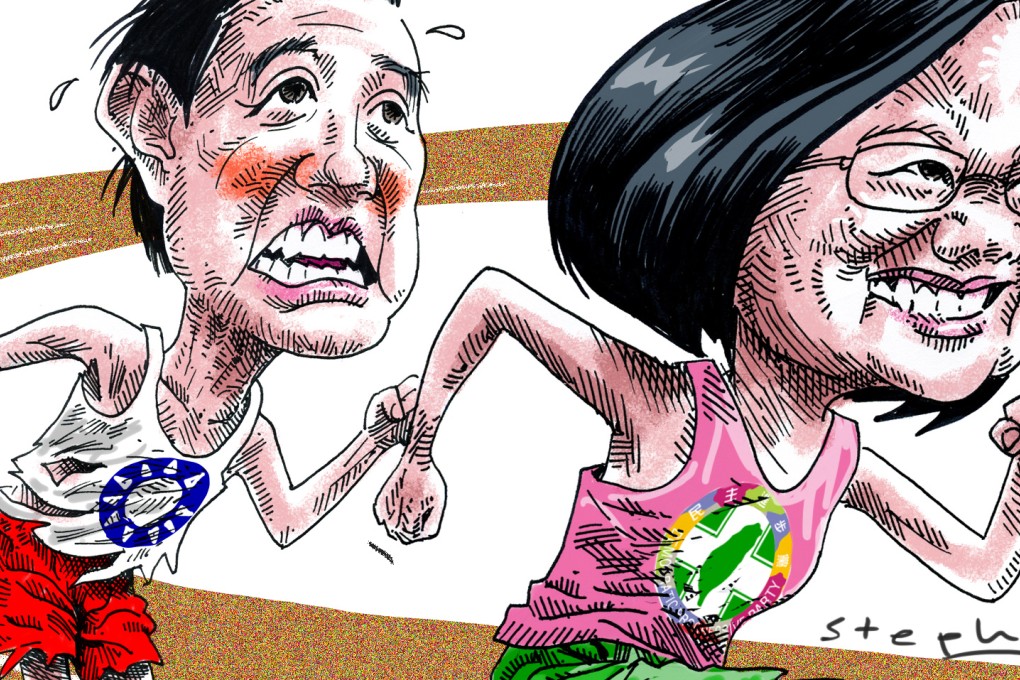Livelihood issues set the tone for Taiwan’s presidential election, not its ‘sovereignty’ tussle with China
Jonathan Sullivan says setting aside the China question is likely to help Tsai Ing-wen win Taiwan’s election race, but learning how to work with China will determine the success of her presidency


Taiwan’s famously even distribution of wealth has gone to the winds, and social mobility is no longer something that Taiwanese can take for granted
If the latter surprise was intended to give the KMT’s election chances a boost, it didn’t work, despite the appealing optics of “the handshake” for the world’s media and the boost it might provide for perceptions outside Taiwan of Ma’s “legacy”. (In Taiwan, the meeting was greeted with anger or apathy.)
The 2016 presidential election is all about Ma and the KMT; Tsai’s big lead does not necessarily reflect huge enthusiasm for the DPP. The KMT’s expected loss in the coming election would reflect widespread discontent with Ma and his party, particularly the outcomes and trajectory of his economic policies. In the past 7½ years that Ma has been in power, the cost of living in Taiwan has steadily risen while wages have barely moved. House prices have increased by 45 per cent, and the price of a Taipei home is now about 16 times the average annual income (it is 7.5 times in Taiwan as a whole).
READ MORE: Taiwan narrowly avoids recession as exports slump to mainland China’s slowing economy

Taiwan’s famously even distribution of wealth has gone to the winds, and social mobility is no longer something that Taiwanese can take for granted. Education in particular is no longer the passport to mobility it once was, with many graduates earning a desultory NT$24,000 (HK$5,600) starting monthly salary.
As widespread feelings of relative deprivation have taken hold, corporations and individuals with political connections have profited from the opening of Taiwan’s economy to mainland China. Squandering their long-held reputation as stewards of the “economic miracle” in the 1960s and 1970s, Ma and the KMT have come to represent the 1 per cent in society. That Ma, a self-styled Confucian elite, has demonstrated contempt for colleagues in his own party and adopts a personal style that combines aloofness with indecision and authoritarian decision-making, compounds the feeling that he does not serve the best interests of regular Taiwanese.
As in Hong Kong, an influx of Chinese tourists has exacerbated the sense of difference and antipathy towards Chinese people
Ma’s China policy is one factor, of course. Economic integration has implications for many sectors in Taiwan, including housing and jobs. Taiwanese companies have long swapped investment in Taiwan for mainland China, even moving out research and development operations, further depressing the domestic job market.